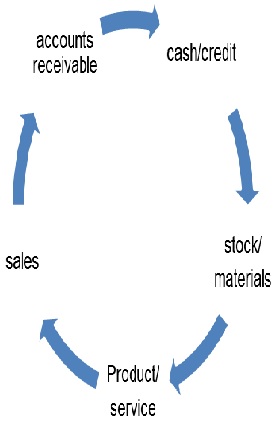Sneak Peak
Learn the skills necessary to better manage projects
Discover new ways to assess, strategise, then execute plans, bring out the best in your team, and keep on task and within budget. You’ll also learn concrete skills and handy frameworks like SWOT analyses, Gantt charts, and bench marking practices that can be applied across a variety of fields.
What is covered in this course?
LESSON 1 NATURE AND SCOPE OF PROJECT MANAGEMENT
The role of a project manager
Definitions
Characteristics of a project
Stages of a project
Where is project management applied?
Types of project management
Types of project management offices
Project types
State of the art
Static management
Lesson 1 additional reading
Review what you have been learning
LESSON 2 RISK AND UNCERTAINTY
What is risk?
Some seek risk
The importance of a business case
The feasibility study
Risk identification
Lesson 2 additional reading
Review what you have been learning
LESSON 3 MAINTAINING CONTROL THROUGHOUT THE PROJECT
Tools for control
When and where control needs to be exercised
Nine steps to successful project planning
Lesson 3 additional reading
Review what you have been learning
LESSON 4 INTERPERSONAL RELATIONSHIPS
What is communication?
Communication systems and techniques
Setting up communications systems in projects
Active listening
Finding the right staff
Lesson 4 additional reading
Review what you have been learning
LESSON 5 THE END GAME
Reviews are costly
Lesson 5 additional reading
Review what you have been learning
LESSON 6 SOME GOLDEN RULES OF PROJECT MANAGEMENT
Lesson 6 additional reading
Review what you have been learning
FINAL ASSESSMENT
Learn to Plan First and Act Second
 Well managed projects are conceived with care; actions are considered and planned in advance, then acted upon with control.
Well managed projects are conceived with care; actions are considered and planned in advance, then acted upon with control.
Planning before you act is a good habit to cultivate.
A project plan can be described as a road map which shows the route for completing specific objectives, and alternative ways from their start to their finish. It is usually the case however, that anyone starting to plan a project is almost always unclear about the important or relevant aspects of such projects. Subsequently, once a project need has been identified and considered feasible, then a detailed strategy must be drawn up. This framework or plan is essential for implementing a project by ensuring that what is needed is accounted for, and that the correct steps are taken. The key approach to project planning is to identify and determine the planning parameters of a project.
Planning Parameters
Correct planning involves a number of activities which have to be carefully thought out before a project can be implemented. These include:
- Working out the necessary resource requirements
- Defining each task’s objectives
- Determining a set of performance measures to evaluate progress
The main project parameters need to be defined beforehand, in order to complete these activities.
This involves:
- Quality Planning
- Time Planning
- Expense Planning
Part of the quality planning is to prioritise the order of tasks into a sequence which best fits the project’s progress. It is important to remember that the quality dimension is the crucial linchpin between resources required and the time and cost dimension which is discussed later in the course. Quality planning outlines the standards of performance expected by project management, and provides a useful guide for monitoring project progress.
Key quality planning elements are:
- Determining the quality and types of resources needed (human and material)
- Setting the performance standards desired
- Verifying output quality
The latter two elements (performance standards, and the verification of output quality) is performed by comparing the actual progress of the project during the project implementation phase, with the planned progress as defined by the project schedule or the project strategy framework.
Developing a Strategy Framework
A strategy framework breaks down into tasks, and reduces the possibility of overlooking essential steps or sub objectives which must be completed during the project cycle. Each task is listed as a specific activity which project management must undertake in order to complete the project.
Tasks can be prioritised according to how essential they are. Categories of essentiality include "essential", "not so essential", "non-essential" and "not necessary". This does not mean that tasks which fall within the last category (not necessary) are unnecessary, but rather that if the budget, time or other unpredictable constraints occur and the strategy framework needs to be changed, then these tasks can be left out altogether, without any lasting disruption to the project.
A strategy framework should broadly incorporate the following qualities:
- The goal and sub objectives of each task.
- General resource commitments
- A general layout of planned schedules

A more detailed breakdown of the task schedules and requirements is often necessary when planning quality. This is accomplished by a project breakdown structure.
Developing a Project Breakdown Structure
A project breakdown structure is an analysis of the tasks listed in the strategy framework. Each task is broken down into sub tasks and all the relevant activities identified. A project breakdown structure therefore goes further than the strategy framework, by detailing the process required to complete each task of the project. In particular, the project breakdown structure identifies the necessary resources and standards or output quality to be fulfilled.
Useful questions to ask at this stage include:
- What is the overall goal to be accomplished?
- What has to be done to meet this goal?
- How can it be done?
Course Features:
WHO IS THIS COURSE FOR?
Almost every industry imaginable needs project managers; and this course can give you the fundamental training to be one.
You may have a need in your current employment to learn to better manage projects. You may have specific projects in your private life that need managing (eg. an event or building renovation); and this course can provide a fundamental training to do the job yourself. You may be a project manager wanting to provide some training to your staff. You may be an expert in your discipline, and have 95% of the skills needed to obtain contract jobs, but need to top up your skills with some formal training in project management in order to win and carry out contracts being offered.
How does this course work?
You can enrol at any time
Once you have paid for the course, you will be able to start straight away.
Study when and where you like. Work through at your own pace.
You can download your study-guide to your smart phone, tablet or laptop to read offline.
There are automated self-assessment tests you can complete at the end of each lesson. You can attempt these as many times as you wish and each time, upon completion, you can see your results. You will need internet access to complete the self assessment tests.
At the end of the course, you are presented with a large assessment which can be attempted online, anywhere, anytime. If you achieve a 60% pass in the exam; you immediately receive a downloadable certificate of completion with your name on it. If you do not achieve a 60% pass rate, you can contact us to re-sit your exam. ( email- admin@acs.edu.au )
Contact us at anytime if you have any issues with the course. admin@acs.edu.au